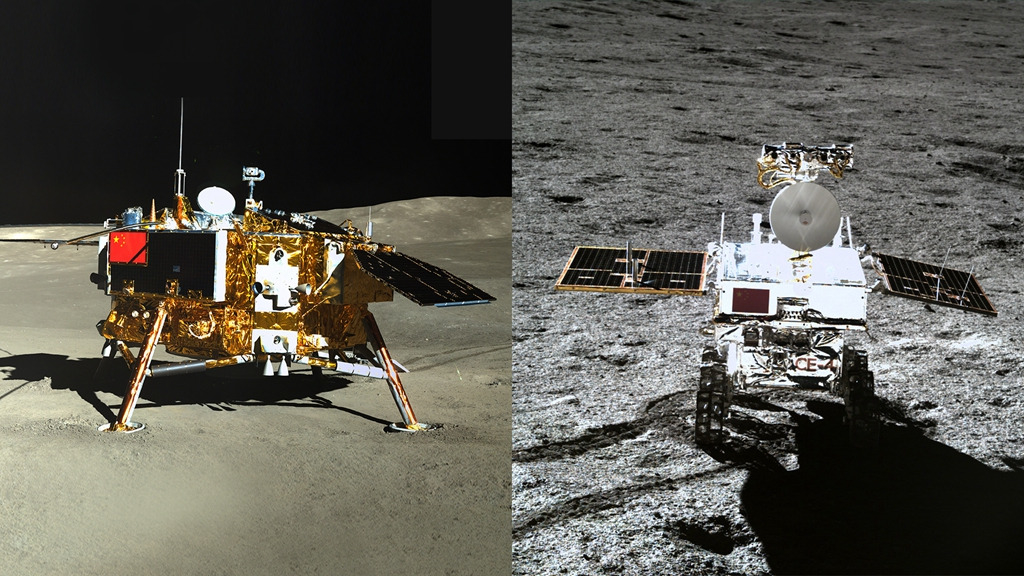According to NASA’s top administrator, China and the United States are engaged in a new space race. He warned that if China prevails, it may claim ownership of territory on the moon.
Former astronaut and Florida senator Bill Nelson, the administrator of NASA, told Politico that if China first establishes a foothold on the moon, they may cordon off the most resource-rich portions of the lunar surface.
“It is a fact: we’re in a space race,” he told the outlet.
He further stated that the US should watch out that Beijing doesn’t get to a place on the moon under the premise of conducting a scientific study, and it is not beyond the horizon of possibilities that they say, “Keep out, we’re here, this is our land.”
Nelson continued by bringing up China’s aggressive behavior in the South China Sea, where the Chinese government frequently asserts its sovereignty over territories that belong to other nations.
Nelson’s critical remarks come after NASA’s 26-day Artemis I mission, during which an unmanned Orion spacecraft circled the moon. Widely viewed as a success, the mission represented the first significant step in NASA’s ambition to send astronauts to the moon in 2025.

The aggressive space program of China, which recently saw the debut of a new space station, is becoming a severe threat to the US. Beijing has stated that it hopes to land taikonauts on the moon before the end of this decade.
In December, China’s government announced its plans for more ambitious projects, including creating a space governance system and building space infrastructure. Meanwhile, the US space agency has been working on its Artemis series of lunar missions.
Nevertheless, the US program could risk falling behind the Chinese if there are substantial setbacks or delays because it depends on several novel systems and apparatuses still under development.
Growing Concerns About China’s Space Program
High-ranking US officials have repeatedly cautioned in recent years that China’s Space capabilities are developing rapidly, posing significant challenges to American supremacy in outer space.
In November 2022, the US Space Force’s director of staff, Nina Armagno, stated that Beijing had made substantial strides in developing military space technology, particularly in fields like satellite communications and reusable spacecraft, which enable nations to build up their space programs quickly.
“I think it’s entirely possible they could catch up and surpass us, absolutely. The progress they’ve made has been stunning, stunningly fast,” Armagno said at an event hosted by the Australian Strategic Policy Institute.
A Pentagon report also highlighted recent advancements in the Chinese space program. It noted China’s innovative capacity to land on the far side of the moon and establish a communications relay using a satellite between the Earth and the moon.
The report discovered that China is improving at producing space launch systems to enable more human space exploration. The communist government in China, however, insists that these concerns regarding its motives are baseless.
Chinese Embassy in Washington spokesperson Liu Pengyu said in a statement that certain American officials had talked carelessly to disparage China’s routine and legitimate space endeavors. “China firmly rejects such remarks,” he added.
Exploration and peaceful applications of outer space are a shared human endeavor that should benefit all, Pengyu noted.
He said that China consistently promotes the peaceful use of space, opposes the militarization and space weapons race, and actively seeks to establish a space community with a shared future for humanity.
Nevertheless, Nelson expressed assurance that the American mission to return to the moon first is proceeding according to plan, pointing out that the Artemis program has congressional funding. Congress authorized $24.5 billion for NASA in fiscal 2023, approximately half of what President Joe Biden sought.
Credits: SpaceX
He stated that the next lunar trip, Artemis II, will take place “within two years” and that “hopefully, we can accelerate it.” That mission plan calls for sending a crew into lunar orbit by 2024.
However, he revealed that the space agency is under severe pressure because it has been compelled, as a cost-cutting measure, to reuse all of the avionics within the Artemis I capsule for Artemis II.
The latest remarks from the head of NASA show how China and the US are vying for access to the moon’s abundant resources in an increasingly competitive contest.
- Contact the author at ashishmichel(at)gmail.com
- Follow EurAsian Times on Google News